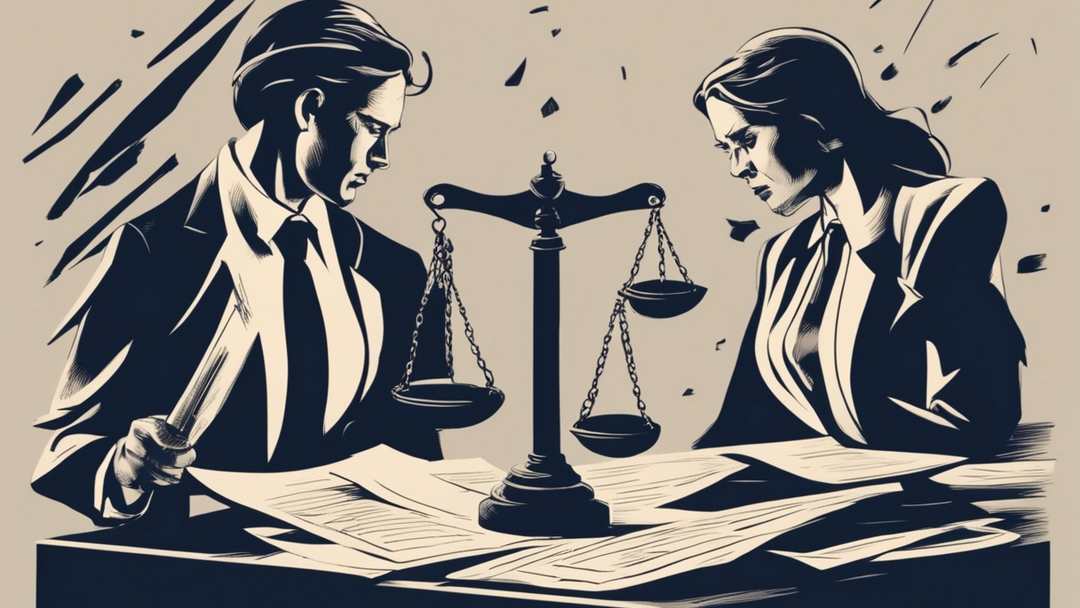What’s the difference between a Magistrate and a Judge in Michigan?
In Michigan’s court system, both magistrates and judges play important roles, but they have different responsibilities and authority. Understanding the differences between the two can help you know what to expect if you find yourself in court.
What Is a Magistrate?
A magistrate is a judicial officer with more limited authority than a judge. They are often appointed by the chief judge of a court and assist judges by handling less serious matters. While they are not elected like judges, magistrates still play a crucial role in the justice system, especially in Michigan’s District Courts.
Magistrates typically handle:
- Traffic violations and small claims cases
- Setting bail and issuing warrants
- Arraignments (the first court appearance where charges are read)
- Conducting preliminary examinations in some criminal cases
- Handling informal hearings and resolving minor disputes
Magistrates are not authorized to preside over trials for more serious criminal offenses or issue final judgments in complex cases. Their role is to help ease the court’s workload by dealing with simpler matters.
What Is a Judge?
A judge is an official who presides over court cases and makes decisions based on the law. Judges handle a wide variety of cases, including criminal, civil, family, and probate matters. In Michigan, judges are either elected by voters or appointed by the governor to serve a specific term, usually six years.
Judges have broad authority and can:
- Oversee trials in both criminal and civil cases
- Make rulings on evidence and legal issues
- Decide the outcome of cases if there is no jury
- Sentence individuals in criminal cases
- Handle appeals in some cases
Judges are often seen in higher courts, such as Circuit Courts or Probate Courts, where they have more power and oversee more serious matters, such as felony cases or significant lawsuits.
In summary, while both magistrates and judges play important roles in Michigan’s court system, judges have more authority and handle more complex cases, while magistrates focus on smaller, less serious legal matters.
Since 1993 Komorn Law has provided expert legal defense for individuals facing criminal charges, DUI cases, and appeals in both Federal and State courts.
Komorn Law’s aggressive defense strategies, ensures that your rights are protected at every stage of the legal process. If you’re looking for a fighting lawyer, call us.
Note: This article provides a general overview and does not substitute for legal advice. Anyone charged with a CSC offense should consult an attorney for specific legal guidance.
Laws
Gun buyback program – Michigan
There's another bounty to be claimed besides turning in your neighbor.Defined here in HB6144 can mean so many things... “firearm” means any weapon that will, is designed to, or may readily be converted to expel a projectile by action of an explosiveEntrepreneurs get...
Sextortion – Michigan
Sextortion - Extortion with an S.Michigan House Bills 5887 and 5888 make sextortion illegal in Michigan. The law defines sextortion as a threat to create or disseminate sexually explicit images or videos of another person to coerce them. The new law makes a first...
When Can Police Confiscate Your Drone in Michigan?
Someone asked us... Can the police take my drone?As we have seen ... They can charge, arrest you and take your stuff for whatever they want. You'll have to fight it out in court to get it back.In Michigan, the police can confiscate your drone under certain...
Using a computer to commit a crime – The latest add on charges
FRAUDULENT ACCESS TO COMPUTERS, COMPUTER SYSTEMS, AND COMPUTER NETWORKS (EXCERPT)Act 53 of 1979752.796 Use of computer program, computer, computer system, or computer network to commit crime. Sec. 6. (1) A person shall not use a computer program, computer,...
Can I be arrested for flying a drone in Michigan?
Someone asked us... Can I be arrested for flying a drone?As we have seen ... They can charge you and arrest you for whatever they want. But Can I Be Arrested or Fined for Flying a Drone? Yes, you can be arrested or fined for breaking Michigan’s drone laws. Under MCL...
Add on charges for your permanent record – Using a computer
The Use of Electronic Devices to Commit Crimes in Michigan Yes that means your cellphone... Computer" means any connected, directly interoperable or interactive device, equipment, or facility that uses a computer program or other instructions to perform specific...
Can You Be Charged for Using Your Phone During a Crime in Michigan?
Your breaking the law if you are using a cellphone while driving. On top of that if you're committing a crime and you use the phone... You're in for a prosecutor's extra round of office high fives.Can You Be Charged for Using Your Phone During a Crime in Michigan?...
Prohibited person possessing firearm
Thinking about going hunting? Not if you are a person who is prohibited from possessing a firearm in Michigan.In Michigan, certain individuals are legally prohibited from owning or possessing a firearm. Being caught with a firearm if you fall under this category can...
Unlawful Possession of a Controlled Substance in Michigan
Unlawful Possession of a Controlled Substance in MichiganIn Michigan, being caught with illegal drugs can lead to serious consequences. The state has strict laws on drug possession, and unlawful possession of a controlled substance is one of the most common charges....
Obstruction Laws in Michigan
Move along or you'll be arrested for Obstruction of "Justice".In Michigan, obstruction is a crime that involves interfering with law enforcement or other officials when they are trying to carry out their duties. Obstruction can cover a wide range of actions, including...



















